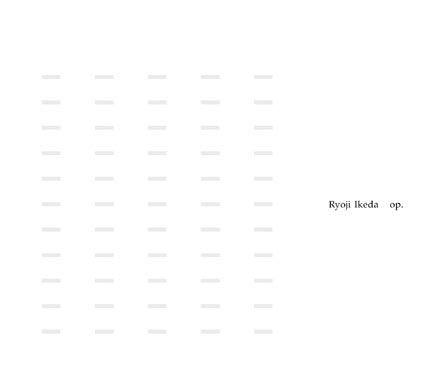 Whether or not Ryoji Ikeda has an academic degree in classicalcomposition is irrelevant, the man has proven that he has an ear forsound and how to develop it nicely, using the sources he has to theirfullest. This, to me, is quite the opposite of an irritating trend ofmodern experimental academia in the sense that numerous composers andmusicians will insist that their authority be respected with a largeamount of literature to digest before the first notes are even heard.(Just think of all the people commissioned to record bridges only tofilter the sounds through whatever effects units they own.) Even withthis album, which is a grand departure from Ikeda's style, thepackaging remains simple with only enough text necessary. In the past,Ikeda's music has been composed entirely of wave tones, clicks, andother sounds that simply do not occur in nature. This time, however,there are absolutely no electronic sounds used. "Op. 1" is the firstpart, and is composed for 9 strings in four movements. The piece isn'tentirely unlike his electronic music, introduced with a piercing pitch,but this time it's provided by a solo violin high on the fingerboard.The individual note is played and another follows, the cycle becomesrhythmically repeated while the notes change, accompanied by anotherviolin in abrasive minor intervals. Soon, the violins are joined withthe lower tones of viola, cello and the drone of a double bass. Also,in a similar way to his electronic recordings, the distinguishingendpoints of various movements are practically inaudible, onlyobservable by watching the CD player click through index points. "Op.2," and "Op. 3" follow, each reduced to only a string quartet. Therhtyhm from "Op. 1" is left behind but the tone exploitation remains.Once again, on "Op. 2," never at one point do individual players movefrom note to note without pausing. This time, however, the differentinstruments play at staggered times, like watching raindrops fall tothe ground in slow motion, one by one. "Op. 3" is probably the mostdeveloped piece, despite it being about half the length of the others.Here, each instrument takes turns making their attempts at simple andshort, four-note melodic phrases. High-pitched piercing drones arereintroduced which contrast nicely to low melodic phrases played by thecello. The disc ends with a prototype of "Op. 1," played only by athree-piece of violin, viola and cello. The piercing notes and rhythmicsynergy is remeniscent of the more fully figured version firstappearing on the disc and the composition is almost entirely identical,but this time I sense a bit of post-production here with only smallhints of effects added on afterwards. While this one is noted as theprototype, it seems more emotional, more disturbing and unsettling yetmore connected. Perhaps it's Ikeda's smug way of proving that while hecan do it with a bigger ensemble, he's still quite capable of gettingmore out of less.
Whether or not Ryoji Ikeda has an academic degree in classicalcomposition is irrelevant, the man has proven that he has an ear forsound and how to develop it nicely, using the sources he has to theirfullest. This, to me, is quite the opposite of an irritating trend ofmodern experimental academia in the sense that numerous composers andmusicians will insist that their authority be respected with a largeamount of literature to digest before the first notes are even heard.(Just think of all the people commissioned to record bridges only tofilter the sounds through whatever effects units they own.) Even withthis album, which is a grand departure from Ikeda's style, thepackaging remains simple with only enough text necessary. In the past,Ikeda's music has been composed entirely of wave tones, clicks, andother sounds that simply do not occur in nature. This time, however,there are absolutely no electronic sounds used. "Op. 1" is the firstpart, and is composed for 9 strings in four movements. The piece isn'tentirely unlike his electronic music, introduced with a piercing pitch,but this time it's provided by a solo violin high on the fingerboard.The individual note is played and another follows, the cycle becomesrhythmically repeated while the notes change, accompanied by anotherviolin in abrasive minor intervals. Soon, the violins are joined withthe lower tones of viola, cello and the drone of a double bass. Also,in a similar way to his electronic recordings, the distinguishingendpoints of various movements are practically inaudible, onlyobservable by watching the CD player click through index points. "Op.2," and "Op. 3" follow, each reduced to only a string quartet. Therhtyhm from "Op. 1" is left behind but the tone exploitation remains.Once again, on "Op. 2," never at one point do individual players movefrom note to note without pausing. This time, however, the differentinstruments play at staggered times, like watching raindrops fall tothe ground in slow motion, one by one. "Op. 3" is probably the mostdeveloped piece, despite it being about half the length of the others.Here, each instrument takes turns making their attempts at simple andshort, four-note melodic phrases. High-pitched piercing drones arereintroduced which contrast nicely to low melodic phrases played by thecello. The disc ends with a prototype of "Op. 1," played only by athree-piece of violin, viola and cello. The piercing notes and rhythmicsynergy is remeniscent of the more fully figured version firstappearing on the disc and the composition is almost entirely identical,but this time I sense a bit of post-production here with only smallhints of effects added on afterwards. While this one is noted as theprototype, it seems more emotional, more disturbing and unsettling yetmore connected. Perhaps it's Ikeda's smug way of proving that while hecan do it with a bigger ensemble, he's still quite capable of gettingmore out of less.  Whether or not Ryoji Ikeda has an academic degree in classicalcomposition is irrelevant, the man has proven that he has an ear forsound and how to develop it nicely, using the sources he has to theirfullest. This, to me, is quite the opposite of an irritating trend ofmodern experimental academia in the sense that numerous composers andmusicians will insist that their authority be respected with a largeamount of literature to digest before the first notes are even heard.(Just think of all the people commissioned to record bridges only tofilter the sounds through whatever effects units they own.) Even withthis album, which is a grand departure from Ikeda's style, thepackaging remains simple with only enough text necessary. In the past,Ikeda's music has been composed entirely of wave tones, clicks, andother sounds that simply do not occur in nature. This time, however,there are absolutely no electronic sounds used. "Op. 1" is the firstpart, and is composed for 9 strings in four movements. The piece isn'tentirely unlike his electronic music, introduced with a piercing pitch,but this time it's provided by a solo violin high on the fingerboard.The individual note is played and another follows, the cycle becomesrhythmically repeated while the notes change, accompanied by anotherviolin in abrasive minor intervals. Soon, the violins are joined withthe lower tones of viola, cello and the drone of a double bass. Also,in a similar way to his electronic recordings, the distinguishingendpoints of various movements are practically inaudible, onlyobservable by watching the CD player click through index points. "Op.2," and "Op. 3" follow, each reduced to only a string quartet. Therhtyhm from "Op. 1" is left behind but the tone exploitation remains.Once again, on "Op. 2," never at one point do individual players movefrom note to note without pausing. This time, however, the differentinstruments play at staggered times, like watching raindrops fall tothe ground in slow motion, one by one. "Op. 3" is probably the mostdeveloped piece, despite it being about half the length of the others.Here, each instrument takes turns making their attempts at simple andshort, four-note melodic phrases. High-pitched piercing drones arereintroduced which contrast nicely to low melodic phrases played by thecello. The disc ends with a prototype of "Op. 1," played only by athree-piece of violin, viola and cello. The piercing notes and rhythmicsynergy is remeniscent of the more fully figured version firstappearing on the disc and the composition is almost entirely identical,but this time I sense a bit of post-production here with only smallhints of effects added on afterwards. While this one is noted as theprototype, it seems more emotional, more disturbing and unsettling yetmore connected. Perhaps it's Ikeda's smug way of proving that while hecan do it with a bigger ensemble, he's still quite capable of gettingmore out of less.
Whether or not Ryoji Ikeda has an academic degree in classicalcomposition is irrelevant, the man has proven that he has an ear forsound and how to develop it nicely, using the sources he has to theirfullest. This, to me, is quite the opposite of an irritating trend ofmodern experimental academia in the sense that numerous composers andmusicians will insist that their authority be respected with a largeamount of literature to digest before the first notes are even heard.(Just think of all the people commissioned to record bridges only tofilter the sounds through whatever effects units they own.) Even withthis album, which is a grand departure from Ikeda's style, thepackaging remains simple with only enough text necessary. In the past,Ikeda's music has been composed entirely of wave tones, clicks, andother sounds that simply do not occur in nature. This time, however,there are absolutely no electronic sounds used. "Op. 1" is the firstpart, and is composed for 9 strings in four movements. The piece isn'tentirely unlike his electronic music, introduced with a piercing pitch,but this time it's provided by a solo violin high on the fingerboard.The individual note is played and another follows, the cycle becomesrhythmically repeated while the notes change, accompanied by anotherviolin in abrasive minor intervals. Soon, the violins are joined withthe lower tones of viola, cello and the drone of a double bass. Also,in a similar way to his electronic recordings, the distinguishingendpoints of various movements are practically inaudible, onlyobservable by watching the CD player click through index points. "Op.2," and "Op. 3" follow, each reduced to only a string quartet. Therhtyhm from "Op. 1" is left behind but the tone exploitation remains.Once again, on "Op. 2," never at one point do individual players movefrom note to note without pausing. This time, however, the differentinstruments play at staggered times, like watching raindrops fall tothe ground in slow motion, one by one. "Op. 3" is probably the mostdeveloped piece, despite it being about half the length of the others.Here, each instrument takes turns making their attempts at simple andshort, four-note melodic phrases. High-pitched piercing drones arereintroduced which contrast nicely to low melodic phrases played by thecello. The disc ends with a prototype of "Op. 1," played only by athree-piece of violin, viola and cello. The piercing notes and rhythmicsynergy is remeniscent of the more fully figured version firstappearing on the disc and the composition is almost entirely identical,but this time I sense a bit of post-production here with only smallhints of effects added on afterwards. While this one is noted as theprototype, it seems more emotional, more disturbing and unsettling yetmore connected. Perhaps it's Ikeda's smug way of proving that while hecan do it with a bigger ensemble, he's still quite capable of gettingmore out of less.  It's rare when a band can make somber rock work for a full record.Usually there are peaks and valleys, because all of that sadness eithermakes the listener really depressed or long for an emo album just tobrighten things up, which is never a good thing. It's good that NadaSurf knows this, and in the midst of their most down-tempo releaseever, they throw in some real rockers to get the blood pumping again.(Not that the mellow proceedings hurts them at all.) This is the tourde force record Nada Surf has had percolating for years. Song for song,it's their best effort yet, and it will be hard for them to match thislevel of perfection on future releases. Matthew Caws has always writtenlyrics like they're sung apologies to specific people. There are a fewof those here (he even sings "I'm sorry you've got nowhere to go"), butoverall he just opens up and lets his feelings pour out, withoutregrets or consequences. "Blonde on Blonde" is a reference to theclassic Dylan album and the moods this kind of music can put us in, andit's bar none the best song Nada Surf have ever released. "Blizzard of'77," "Fruit Fly," and "Killian's Red" are rich with vividstorytelling, with the narrator sharing his experience and telling itlike it was for him. Caws' voice is fragile as ever, and the wholealbum has the band sounding their best. Little flourishes help allover, like small Rhodes piano bits and hand claps. When the Surf doreally let go, it's like old times but with more wattage. "Hi-speedSoul" is a call to dance, "Fruit Fly" at its peak is the heaviestlament about mistakes you'll ever hear, and "The Way You Wear YourHead" just hooks and cooks. 'Let Go' is a classic album for Nada Surf,full of the kind of lyrical imagery and melodies that other bands killfor.
It's rare when a band can make somber rock work for a full record.Usually there are peaks and valleys, because all of that sadness eithermakes the listener really depressed or long for an emo album just tobrighten things up, which is never a good thing. It's good that NadaSurf knows this, and in the midst of their most down-tempo releaseever, they throw in some real rockers to get the blood pumping again.(Not that the mellow proceedings hurts them at all.) This is the tourde force record Nada Surf has had percolating for years. Song for song,it's their best effort yet, and it will be hard for them to match thislevel of perfection on future releases. Matthew Caws has always writtenlyrics like they're sung apologies to specific people. There are a fewof those here (he even sings "I'm sorry you've got nowhere to go"), butoverall he just opens up and lets his feelings pour out, withoutregrets or consequences. "Blonde on Blonde" is a reference to theclassic Dylan album and the moods this kind of music can put us in, andit's bar none the best song Nada Surf have ever released. "Blizzard of'77," "Fruit Fly," and "Killian's Red" are rich with vividstorytelling, with the narrator sharing his experience and telling itlike it was for him. Caws' voice is fragile as ever, and the wholealbum has the band sounding their best. Little flourishes help allover, like small Rhodes piano bits and hand claps. When the Surf doreally let go, it's like old times but with more wattage. "Hi-speedSoul" is a call to dance, "Fruit Fly" at its peak is the heaviestlament about mistakes you'll ever hear, and "The Way You Wear YourHead" just hooks and cooks. 'Let Go' is a classic album for Nada Surf,full of the kind of lyrical imagery and melodies that other bands killfor.  Piehead's inaugural subscription series passed my quality controlstandards with flying colors, so there was no need for second thoughtswhen it came time for ordering this year's. As with 2002, this seriesfeatures a disc by a different artist each month and a compilation withexclusive tracks by all of them in the end. This time around, they'reEP length, professionally pressed 3" CD-Rs, pouched with prettyJapanese silk-screened paper inserts, and limited to 211 copies. Lastyear I was familiar beforehand with only two of the artists and thisyear just one (Rapoon) but that's exactly what makes this so much fun!Volume one is by Jack Dangers look-alike Michael Weak, aka Temper, anearly twenty-something Canadian student. The eight tracks that make up'Navy Blue' are remarkably melodic electro/nic ditties that are cutebut not to the point of being cutesy. "Goodmorning (a day at the fair)"is sunny and buzz-y as a synthesized voice reminds you that "outside isbeautiful" so "why not go out and enjoy it?" The soft bass tones of"Full of Stars" and "Still Dreaming" overwhelm every pair of (cheapass) speakers and headphones I own, reminding me of Aphex Twin's'Selected Ambient Works 85-92' in the process. "A Rather SignificantDiscovery" (title derived from a space talk sample) adds a generoussprinkling of pleasant piano melody that shifts the mood of the tracksome. "Please Save Your Applause Until The End, Thank You" is lovablejust for the smarmy sampled use of applause at the end and three verybrief "Pianobox" interludes both break and tie everything up nicely.This series is strong right out of the gate and I'm not surprised onebit. I'm looking forward to whatever the next 11 happen to bring.
Piehead's inaugural subscription series passed my quality controlstandards with flying colors, so there was no need for second thoughtswhen it came time for ordering this year's. As with 2002, this seriesfeatures a disc by a different artist each month and a compilation withexclusive tracks by all of them in the end. This time around, they'reEP length, professionally pressed 3" CD-Rs, pouched with prettyJapanese silk-screened paper inserts, and limited to 211 copies. Lastyear I was familiar beforehand with only two of the artists and thisyear just one (Rapoon) but that's exactly what makes this so much fun!Volume one is by Jack Dangers look-alike Michael Weak, aka Temper, anearly twenty-something Canadian student. The eight tracks that make up'Navy Blue' are remarkably melodic electro/nic ditties that are cutebut not to the point of being cutesy. "Goodmorning (a day at the fair)"is sunny and buzz-y as a synthesized voice reminds you that "outside isbeautiful" so "why not go out and enjoy it?" The soft bass tones of"Full of Stars" and "Still Dreaming" overwhelm every pair of (cheapass) speakers and headphones I own, reminding me of Aphex Twin's'Selected Ambient Works 85-92' in the process. "A Rather SignificantDiscovery" (title derived from a space talk sample) adds a generoussprinkling of pleasant piano melody that shifts the mood of the tracksome. "Please Save Your Applause Until The End, Thank You" is lovablejust for the smarmy sampled use of applause at the end and three verybrief "Pianobox" interludes both break and tie everything up nicely.This series is strong right out of the gate and I'm not surprised onebit. I'm looking forward to whatever the next 11 happen to bring. 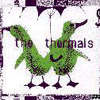 The Thermals debut release on Sub Pop is a four-song single of quickpower-pop. "No Culture Icons" begins strong, with a bouncy feel thatcomes through the crunchy, static buzz. It's super catchy, and loadedwith hooks, as vocalist Hutch Harris begins shouting slogans like "Nonew deafness / no self reference / no cults and / no false starts."Recorded in Death Cab for Cutie's Chris Walla's bedroom, the single hasan amatuerish sound that's endearing, with fuzzy distortion enhancingthe simplicity of the music.
The Thermals debut release on Sub Pop is a four-song single of quickpower-pop. "No Culture Icons" begins strong, with a bouncy feel thatcomes through the crunchy, static buzz. It's super catchy, and loadedwith hooks, as vocalist Hutch Harris begins shouting slogans like "Nonew deafness / no self reference / no cults and / no false starts."Recorded in Death Cab for Cutie's Chris Walla's bedroom, the single hasan amatuerish sound that's endearing, with fuzzy distortion enhancingthe simplicity of the music. "An Endless Supply" keeps up the pace of the opening track, withHarris' voice sounding urgent while adhering to the catchy, sing-a-longmelody. "Capture with a Magnet" speaks of the power of a familiarattraction in a burst of adreneline.The final track, "Everything Thermals" violates the no-self-referencerule that the band declared just three songs earlier, while provingthat the rule existed for a good reason. Lyrics like "Everythingthermals / the come in four shades of purple / some are tight, somehave trousers" are just embarassing, and while it's not their strongestsong, it's probably good that it is here and not on an LP. The Thermalssound like a band that is having a good time, and their attitude isinfectious. 'No Culture Icons' is a snapshot of things to come, and itcan be expected that they are set to make music that's fun to jump upand down to.
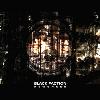 Though technically a remix album of 2001's 'Internal Dissident Part 1',it's more practical to consider 'Reworked' a new entity. MancunianAndrew Diey (aka Black Faction) has taken the input of about 10 otherartists from around the world, often adding "additional sound design"to their reworkings, and spliced in more of his own for another 72minutes of seamless segues. Whether it's Diey's or the others' doing,the sound never strays too far from Black Faction's (varied)aesthetics. Diey's own "Cartesian" sets the tone in typical BlackFaction style: crisp and clean, cinematic electronica that's as melodicas it is moody. Universal Delux's "Kaftanistanabul 1" blends deepbeats, tinted textures and Middle Eastern voices (the disc is dedicatedto friend and influence Bryn Jones aka Muslimgauze). Rapoon's"Caligulan" is a seething dark ambient soup that pours neatly into themetallic tone collage of Keith Fullerton Whitman's "Sepia Indate." Thenit's back to the rhythm, as Sutekh goes gritty techno with "OaklandConcréte" and Valea Djinn loops her own pretty vocal wail into thequirky mix of "Modenesa". Nemezis rechristen "Widowmaker" as"Windowmaker" and it's just as subtle and sublime as the originalmasterpiece. Black Moses drop the Hip Hop bomb, scattering cut-up MCingover the lilting string pads and minimal beat of "Anti-Freeze -PropsMix." The lengthy finales are "Dissidents in Exile" by Foreign Terrain(Diey's previous moniker) and CClay and "Mina Schoen Unreleased" byBlack Arc (Seven Sages Version, another of Diey's projects). Bothsettle into mild mannered, repetitious rhythms allowing the femininevoices and miscellaneous sound effects to fill the foreground. Everyfacet of Black Faction's sound is expertly explored here making for analbum that's as good if not better than 'Internal Dissident Part 1'.It's a fine companion to the 'New Cult of the Sun Moon' two disccollaboration between Robin Storey (Rapoon) and Diey, out now viaSoleilmoon.
Though technically a remix album of 2001's 'Internal Dissident Part 1',it's more practical to consider 'Reworked' a new entity. MancunianAndrew Diey (aka Black Faction) has taken the input of about 10 otherartists from around the world, often adding "additional sound design"to their reworkings, and spliced in more of his own for another 72minutes of seamless segues. Whether it's Diey's or the others' doing,the sound never strays too far from Black Faction's (varied)aesthetics. Diey's own "Cartesian" sets the tone in typical BlackFaction style: crisp and clean, cinematic electronica that's as melodicas it is moody. Universal Delux's "Kaftanistanabul 1" blends deepbeats, tinted textures and Middle Eastern voices (the disc is dedicatedto friend and influence Bryn Jones aka Muslimgauze). Rapoon's"Caligulan" is a seething dark ambient soup that pours neatly into themetallic tone collage of Keith Fullerton Whitman's "Sepia Indate." Thenit's back to the rhythm, as Sutekh goes gritty techno with "OaklandConcréte" and Valea Djinn loops her own pretty vocal wail into thequirky mix of "Modenesa". Nemezis rechristen "Widowmaker" as"Windowmaker" and it's just as subtle and sublime as the originalmasterpiece. Black Moses drop the Hip Hop bomb, scattering cut-up MCingover the lilting string pads and minimal beat of "Anti-Freeze -PropsMix." The lengthy finales are "Dissidents in Exile" by Foreign Terrain(Diey's previous moniker) and CClay and "Mina Schoen Unreleased" byBlack Arc (Seven Sages Version, another of Diey's projects). Bothsettle into mild mannered, repetitious rhythms allowing the femininevoices and miscellaneous sound effects to fill the foreground. Everyfacet of Black Faction's sound is expertly explored here making for analbum that's as good if not better than 'Internal Dissident Part 1'.It's a fine companion to the 'New Cult of the Sun Moon' two disccollaboration between Robin Storey (Rapoon) and Diey, out now viaSoleilmoon. The Baptist Generals, whose very name hints at a collared intensity,have produced an album that pulls at that restraint until it snaps. 'NoSilver, No Gold' is haunted, clearly. On the first track, theyintroduce the mind that shapes this album. "Ay Distress" begins as asimple, weary sounding dirge. This lasts for three minutes into thesong, when someone's cell phone begins to ring in the studio, andsinger Chris Flemmons explodes into a fury, throwing his acousticguitar down and screaming "Goddamn it, Oh God. Fuck!" as those aroundhim try to calm him down. Indeed this is a man who is serious about hismusical expression. This volitility serves as an unsettlingundercurrent throughout the album. 'No Silver, No Gold' creaks andgroans like a dusty, rundown shack swaying on its foundation. It's thisprecariousness that demands attention, that at any moment it willcollapse and spill out its insides. Flemmons' approach to his guitar isnot one of melodic delicacy but percussive attack, raw and rough. Stll,many of the songs manage to feel delicate with obtuse lyrics that hintat deeper pain and emotion. "Give me your hands / I don't need yourmind now," he pleads on "Preservatine," "I need your hands / engaged inthe construction of a special place / we can hold onto the light."Flemmons' often rambling delivery adds to the unhinged feeling of thealbum. There are moments of poignant confession, "Diminished," alongside uncomfortable leching like "Creeper," where the singer comes offas an unwanted, drunken advance. You can't help but be creeped out byhis assurance, "Give me your number / I'll come around." The mostovertly volatile song is "Burning," where Flemmons scathingly accuses"You want love, do you? You call it love / It's a murder / It's atheft." 'No Silver, No Gold' reads like the diary of a broken soul,cathartic, a fascinating look into the mind of someone dealing with hisown haunting.
The Baptist Generals, whose very name hints at a collared intensity,have produced an album that pulls at that restraint until it snaps. 'NoSilver, No Gold' is haunted, clearly. On the first track, theyintroduce the mind that shapes this album. "Ay Distress" begins as asimple, weary sounding dirge. This lasts for three minutes into thesong, when someone's cell phone begins to ring in the studio, andsinger Chris Flemmons explodes into a fury, throwing his acousticguitar down and screaming "Goddamn it, Oh God. Fuck!" as those aroundhim try to calm him down. Indeed this is a man who is serious about hismusical expression. This volitility serves as an unsettlingundercurrent throughout the album. 'No Silver, No Gold' creaks andgroans like a dusty, rundown shack swaying on its foundation. It's thisprecariousness that demands attention, that at any moment it willcollapse and spill out its insides. Flemmons' approach to his guitar isnot one of melodic delicacy but percussive attack, raw and rough. Stll,many of the songs manage to feel delicate with obtuse lyrics that hintat deeper pain and emotion. "Give me your hands / I don't need yourmind now," he pleads on "Preservatine," "I need your hands / engaged inthe construction of a special place / we can hold onto the light."Flemmons' often rambling delivery adds to the unhinged feeling of thealbum. There are moments of poignant confession, "Diminished," alongside uncomfortable leching like "Creeper," where the singer comes offas an unwanted, drunken advance. You can't help but be creeped out byhis assurance, "Give me your number / I'll come around." The mostovertly volatile song is "Burning," where Flemmons scathingly accuses"You want love, do you? You call it love / It's a murder / It's atheft." 'No Silver, No Gold' reads like the diary of a broken soul,cathartic, a fascinating look into the mind of someone dealing with hisown haunting.  The Galaktica agent of the multi-faceted, many-membered Origami artcollective is one Benny Braaten. You might have encountered him latelast year opening for the Legendary Pink Dots on their North Americantour. There, he ensconced those smart enough to show up early in dronesand ambiance and manically bowed bass guitar strings. At themerchandise table were flyers advertising this forthcoming 7". Soonafter the tour I sent off $7 to Norway and about two months later therecord (one of 500) arrived. There are two versions of the title track,recorded in Canada and Norway respectively. Version I offers a slow,breathy drone that rises and falls at times into near silence,glass-like chimes gently touching in the distance. The latter half ofthe track gains new layers of warmth and the twinkles gain friction.Version II is more ominous with a sustained, darker hued hum as subtletrombone notes effectively add to the aura. It's nice, soothing stuff,but with both tracks clocking in at just under five minutes, it reallyleaves you wanting for more, such as the stunning 'Stjernevandring /Eesti Lilled Silmad Süda' double CD from Norway's Jester Records. Thedigital format certainly allows Origami Galaktika's music the mammothtrack times it deserves.
The Galaktica agent of the multi-faceted, many-membered Origami artcollective is one Benny Braaten. You might have encountered him latelast year opening for the Legendary Pink Dots on their North Americantour. There, he ensconced those smart enough to show up early in dronesand ambiance and manically bowed bass guitar strings. At themerchandise table were flyers advertising this forthcoming 7". Soonafter the tour I sent off $7 to Norway and about two months later therecord (one of 500) arrived. There are two versions of the title track,recorded in Canada and Norway respectively. Version I offers a slow,breathy drone that rises and falls at times into near silence,glass-like chimes gently touching in the distance. The latter half ofthe track gains new layers of warmth and the twinkles gain friction.Version II is more ominous with a sustained, darker hued hum as subtletrombone notes effectively add to the aura. It's nice, soothing stuff,but with both tracks clocking in at just under five minutes, it reallyleaves you wanting for more, such as the stunning 'Stjernevandring /Eesti Lilled Silmad Süda' double CD from Norway's Jester Records. Thedigital format certainly allows Origami Galaktika's music the mammothtrack times it deserves.The LTM label seems to have dedicated itself to reissuing work byFactory Records bands of the early 1980s who never quite became thenext New Order, Joy Division, or Happy Mondays. So far, they haveheroically compiled full CDs for bands who might only have had only one7" on Factory, or whose work might have been overshadowed by thedominating mythos of that label or of producer Martin Hannett. Lately,LTM has exhumed a band who were one of Factory's strangest signings, aDutch trio called Minny Pops. These two CDs comprise the group's secondLP, 'Sparks in a Dark Room' (here coupled with contemporaneous 7" anddemo material) and 'Secret Stories,' which is a collection of more 7"singles, demos, and excerpts from their third and fourth albums.
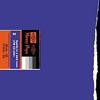 The question now is, since collectors have been clammoring for theserecords for so long, have they actually been worth the wait? I'd sayso, but with some reservation. Minny Pops' yet-to-be-reissued debutalbum, "Drastic Measures, Drastic Movements" from 1979, was a bizarremix of noise, new wave, synth pop, and Yello-like cabaret goofiness. Itis one of the most genuinely tweaked documents of DIY electro-pop, arecord which to this day causes heads to be scratched in satisfyingbewilderment. As the group's members aquired careers as record labelexecutives (at Boudisque, Play it Again Sam, etc), the music that theyproduced became more accessible, the noise nearly vanished, andrecognizable industrial-funk genre trappings emerged. If you're awareof the music happening in Belgium in the early 1980s (particularlySiglo XX, the Neon Judgement, and A Blaze Colour) then the gloomymonotone grooves of 'Sparks in a Dark Room' will immediately soundfamiliar. But there's something different here; on 'Sparks,' thereexists an implacable note of self-awareness and humor which seperatesthe album from those by other practitioners of the style. Tunes like "AFeeling" and "Night Visit" are perversely catchy, with lyrics that tendtoward self-effacing. I like that. The humor, however subtle, offsetsthe otherwise overbearing gloom.
The question now is, since collectors have been clammoring for theserecords for so long, have they actually been worth the wait? I'd sayso, but with some reservation. Minny Pops' yet-to-be-reissued debutalbum, "Drastic Measures, Drastic Movements" from 1979, was a bizarremix of noise, new wave, synth pop, and Yello-like cabaret goofiness. Itis one of the most genuinely tweaked documents of DIY electro-pop, arecord which to this day causes heads to be scratched in satisfyingbewilderment. As the group's members aquired careers as record labelexecutives (at Boudisque, Play it Again Sam, etc), the music that theyproduced became more accessible, the noise nearly vanished, andrecognizable industrial-funk genre trappings emerged. If you're awareof the music happening in Belgium in the early 1980s (particularlySiglo XX, the Neon Judgement, and A Blaze Colour) then the gloomymonotone grooves of 'Sparks in a Dark Room' will immediately soundfamiliar. But there's something different here; on 'Sparks,' thereexists an implacable note of self-awareness and humor which seperatesthe album from those by other practitioners of the style. Tunes like "AFeeling" and "Night Visit" are perversely catchy, with lyrics that tendtoward self-effacing. I like that. The humor, however subtle, offsetsthe otherwise overbearing gloom. 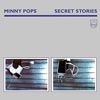 The "Secret Stories" compilation is problematic, though I am glad thatit exists. In other words, if tracks from the band's 1985 reunion LP,'4th Floor,' and their 1983 soundtrack to 'Poste Restante' were notreissued in some form, there would always be someone crying "Whydoesn't someone reissue those other two Minny Pops records I can'tfind?". The tracks from both of these albums, which make up the discs'ssecond half, recall some of Tuxedomoon's post-Ralph schmaltz, with thehumor replaced by opaque melodrama. My curiosity about these longout-of-print LPs is now satisfied, but I don't particularly want tohear the music again. Perhaps that's why the albums were not reissuedin their entirety (a smart move on LTM's part). However, what's greatabout "Secret Stories" are the 7" tracks that make up the disc's firsthalf, including the classic "Dolphin's Spurt" (a different version thanthe one on 'Drastic Measures'), and several wonderfully rough 1981demos. These show the band at their best, a balance of bizarreelectro-funk and edgy industrial disco. The comparison to early Yelloisn't so far off (and, though I don't really want to validate thevenomous English journalists of 1980 who sought to destroy Factorybands by comparing them all to Joy Division... well, with these 7"s,the comparison is tough not to notice), but Minny Pops were more subtleand much darker. With hindsight, it's easy to imagine which other bandsmight have listened to these records before starting bands of their own(especially the Neon Judgement), adding more bombast to the grooves.Listening to both CDs makes me yearn for the profound oddness thatmarked 'Drastic Measures, Drastic Movements,'which is simply notpresent here.
The "Secret Stories" compilation is problematic, though I am glad thatit exists. In other words, if tracks from the band's 1985 reunion LP,'4th Floor,' and their 1983 soundtrack to 'Poste Restante' were notreissued in some form, there would always be someone crying "Whydoesn't someone reissue those other two Minny Pops records I can'tfind?". The tracks from both of these albums, which make up the discs'ssecond half, recall some of Tuxedomoon's post-Ralph schmaltz, with thehumor replaced by opaque melodrama. My curiosity about these longout-of-print LPs is now satisfied, but I don't particularly want tohear the music again. Perhaps that's why the albums were not reissuedin their entirety (a smart move on LTM's part). However, what's greatabout "Secret Stories" are the 7" tracks that make up the disc's firsthalf, including the classic "Dolphin's Spurt" (a different version thanthe one on 'Drastic Measures'), and several wonderfully rough 1981demos. These show the band at their best, a balance of bizarreelectro-funk and edgy industrial disco. The comparison to early Yelloisn't so far off (and, though I don't really want to validate thevenomous English journalists of 1980 who sought to destroy Factorybands by comparing them all to Joy Division... well, with these 7"s,the comparison is tough not to notice), but Minny Pops were more subtleand much darker. With hindsight, it's easy to imagine which other bandsmight have listened to these records before starting bands of their own(especially the Neon Judgement), adding more bombast to the grooves.Listening to both CDs makes me yearn for the profound oddness thatmarked 'Drastic Measures, Drastic Movements,'which is simply notpresent here.  While several Current Ninety Three live outings have been recorded andin due time released, Antony and the Johnsons five years ofperformances have not seen the same light of day. Perhaps that and the(at the time) upcoming Antony/C93 shows in Portugal and San Franciscowere reasons for Durtro to present this EP length disc featuring threetracks apiece from last April's shows. Antony is at the piano,accompanied by Johnson Maxim Moston on violin. "You Stand Above Me" isonly one minute and thirty-six seconds but contains all the melancholyand drama one would expect. Antony bellows "while eternity cycleswildly, inside me," over plaintive piano notes, the vibrato of hispowerful soprano nestling into every crevice of my mind, body and soul.Antony naturally adapts Edgar Allan Poe's lovely 1827 poem "The Lake"to song, a much more fitting tribute than Lou Reed's ill-advised 'TheRaven' (excepting Antony's minimal rendition of Reed's "Perfect Day").What follows is the tender "Cripple and the Starfish," and what soundslike a well deserved standing ovation. For C93's songs, David Tibet isaccompanied by usual suspects Maja Elliott on piano and MichaelCashmore on guitar. "Walking Like Shadow," from C93 and Nurse WithWound's 'Bright Yellow Moon' is musically true. Ditto the brief versionof "Judas as Black Moth" from 'Soft Black Stars' which also benefitsfrom additional lyrics, "in the middle of the night as the cats cry inthe street, and the scent of flowers is heavy in your hair, the carsweeps by with a murdered child, the car sweeps by with a violatedgirl". The mammoth title track from 'Sleep Has His House' is reduced tojust the main lyrical passage here, the piano and Tibet's voice risingto a fever pitch as he breathlessly chokes on emotion in remembrance ofhis father. It is magnificent. Too bad there's only three songs each.I'd happily pay more for more. Maybe, just maybe, a future show willcome closer to me than 1300 miles away.
While several Current Ninety Three live outings have been recorded andin due time released, Antony and the Johnsons five years ofperformances have not seen the same light of day. Perhaps that and the(at the time) upcoming Antony/C93 shows in Portugal and San Franciscowere reasons for Durtro to present this EP length disc featuring threetracks apiece from last April's shows. Antony is at the piano,accompanied by Johnson Maxim Moston on violin. "You Stand Above Me" isonly one minute and thirty-six seconds but contains all the melancholyand drama one would expect. Antony bellows "while eternity cycleswildly, inside me," over plaintive piano notes, the vibrato of hispowerful soprano nestling into every crevice of my mind, body and soul.Antony naturally adapts Edgar Allan Poe's lovely 1827 poem "The Lake"to song, a much more fitting tribute than Lou Reed's ill-advised 'TheRaven' (excepting Antony's minimal rendition of Reed's "Perfect Day").What follows is the tender "Cripple and the Starfish," and what soundslike a well deserved standing ovation. For C93's songs, David Tibet isaccompanied by usual suspects Maja Elliott on piano and MichaelCashmore on guitar. "Walking Like Shadow," from C93 and Nurse WithWound's 'Bright Yellow Moon' is musically true. Ditto the brief versionof "Judas as Black Moth" from 'Soft Black Stars' which also benefitsfrom additional lyrics, "in the middle of the night as the cats cry inthe street, and the scent of flowers is heavy in your hair, the carsweeps by with a murdered child, the car sweeps by with a violatedgirl". The mammoth title track from 'Sleep Has His House' is reduced tojust the main lyrical passage here, the piano and Tibet's voice risingto a fever pitch as he breathlessly chokes on emotion in remembrance ofhis father. It is magnificent. Too bad there's only three songs each.I'd happily pay more for more. Maybe, just maybe, a future show willcome closer to me than 1300 miles away. - Antony - The Lake
- Antony - You Stand Above Me
- Current 93 - Sleep Has His House
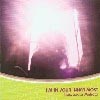 When Acid Mothers Temple played at last year's Terrastock festival,they performed a 45-minute set that completely galvanized the exhaustedcrowd. Having listened to the band's records for years, I was awestruckto be in the physical presence of the band's leader and guru, KawabataMakoto. Here was a man that I had was sure would be a gargantuan,superhuman presence. I was surprised to see that he was an unassuming,diminutive Japanese man with a scraggly head of long messy hair. Healso kept grinning uncomfortably at the crowd. I was somewhatdisappointed by Makoto's decidedly non-Shamanistic appearance, until hestruck the first riff on his electric guitar. Suddenly we were aware ofbeing in the presence of a cosmic messiah, an otherworldly atavisticguru who has the ability to deconstruct and destroy the entire historyof psychedelia, metal, and noise music within one guitar solo. Thisnewest solo outing from Kawabata Makoto is very different from mostAcid Mothers Temple records, however. Eschewing guitars almostcompletely, this album features three long pieces of subtly shiftingelectronic drones and vocal loops. "I'm In Your Inner Most" is apsychedelic drone journey to the center of your mind. Makoto pushes thedistortion on his electric organ, and fills out the texture withsynthesizers, violins and a female vocal sample that randomly fades inand out of the mix. Not very easily digestible at first, upon repeatedlistenings you begin to sense the true cosmic transendence of hismusic. LaMonte Young's influence can be heard in the first track - along, shape-shifting high-pitched squeal that cleanses the listener'smind of all thought, leaving only the rapturous sensation of sound. Thesecond track begins with the same drone, but adds delightfully cosmickeyboard arpeggios and cyclical melodies. Even throughout the beautifulmelodic sections, Makoto continues to push the noise and percussivedistortion so that the listener remains in a completely trancelikestate while investigating the astral worlds that the keyboards usheryou through. Shades of Tangerine Dream and Terry Riley become apparenttowards the end of this track, as the synthesizer loops takeprominence. The third track "Oculation (remix version)" contains thesame organ tones and repetitive synthesizers as the first two tracks,but adds some atonal guitar feedback into the mix. "I'm In Your InnerMost" is definitely an album that requires active listening to enjoy,and unfortunately the one-minute sound bites below cannot begin toapproximate the fully mind-bending listening experience that Makoto hascreated. It's like trying to understand a Jackson Pollock painting byclosely examining some paint globs on the lower right corner of thecanvas; not until you stand back and see the shape and dynamic of theentire work can its full glory be experienced. -
When Acid Mothers Temple played at last year's Terrastock festival,they performed a 45-minute set that completely galvanized the exhaustedcrowd. Having listened to the band's records for years, I was awestruckto be in the physical presence of the band's leader and guru, KawabataMakoto. Here was a man that I had was sure would be a gargantuan,superhuman presence. I was surprised to see that he was an unassuming,diminutive Japanese man with a scraggly head of long messy hair. Healso kept grinning uncomfortably at the crowd. I was somewhatdisappointed by Makoto's decidedly non-Shamanistic appearance, until hestruck the first riff on his electric guitar. Suddenly we were aware ofbeing in the presence of a cosmic messiah, an otherworldly atavisticguru who has the ability to deconstruct and destroy the entire historyof psychedelia, metal, and noise music within one guitar solo. Thisnewest solo outing from Kawabata Makoto is very different from mostAcid Mothers Temple records, however. Eschewing guitars almostcompletely, this album features three long pieces of subtly shiftingelectronic drones and vocal loops. "I'm In Your Inner Most" is apsychedelic drone journey to the center of your mind. Makoto pushes thedistortion on his electric organ, and fills out the texture withsynthesizers, violins and a female vocal sample that randomly fades inand out of the mix. Not very easily digestible at first, upon repeatedlistenings you begin to sense the true cosmic transendence of hismusic. LaMonte Young's influence can be heard in the first track - along, shape-shifting high-pitched squeal that cleanses the listener'smind of all thought, leaving only the rapturous sensation of sound. Thesecond track begins with the same drone, but adds delightfully cosmickeyboard arpeggios and cyclical melodies. Even throughout the beautifulmelodic sections, Makoto continues to push the noise and percussivedistortion so that the listener remains in a completely trancelikestate while investigating the astral worlds that the keyboards usheryou through. Shades of Tangerine Dream and Terry Riley become apparenttowards the end of this track, as the synthesizer loops takeprominence. The third track "Oculation (remix version)" contains thesame organ tones and repetitive synthesizers as the first two tracks,but adds some atonal guitar feedback into the mix. "I'm In Your InnerMost" is definitely an album that requires active listening to enjoy,and unfortunately the one-minute sound bites below cannot begin toapproximate the fully mind-bending listening experience that Makoto hascreated. It's like trying to understand a Jackson Pollock painting byclosely examining some paint globs on the lower right corner of thecanvas; not until you stand back and see the shape and dynamic of theentire work can its full glory be experienced. - 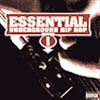 I've never hid my true feelings about "underground" rap music in myreviews. Whether I'm muttering about the lackluster Def Jux family,discrediting the Anti-Pop Consortium, or setting The Streets ablaze, Ishow love to the street-level lyricists who represent properly asopposed to digging through their backpacks for their thesauruses. Yes,I know that artists like Run DMC and Grandmaster Flash built rap music,but so did NWA and the Geto Boys. So when I spotted this budgetsampler, I was inititally skeptical until I scanned the roster: no DefJux names in sight. Released on indie Landspeed Records label, thislengthy compilation packs 19 tracks full of the diversity of theunderground, from hustlers and gangsters to Okayplayer heads andoldschool purists. With contributions from both well-known artists likeN.O.R.E. and 18 Cent (currently tearing up rap radio with two hitsingles from his album on Eminem's Shady Records imprint) as well asoriginators like Inspectah Deck and Big Daddy Kane, there's somethingfor everyone here. Mobb Deep brethren Infamous Mobb spit versesstraight outta Queensbridge over two trademark Alchemist produced cuts,reminding me once again that my borough rocks hardest. Speaking ofQueens, Cormega comes correct here as well, with "Built For This" fromhis latest album (which incidentally made my Top 10 List for 2002) theolder banger "Get Our Of My Way." The biggest surprises here are thehigh-quality unknowns like the Havoc-endorsed R.A. the Rugged Man.Produced by Ayatollah, "You Don't Wanna Fuck Wit" is rife with sweetbeats and pleasantly obscure references to Nabokov's infamous pervertHumbert Humbert and the road rage rich girl Lizzie Grubman. Also ofnote is Group Home, an assumedly Gang Starr-related project whose"Handle Your BI" emits serious head-nodding soul that could warm up thecoldest winter night. The overall outcome is impressive, despiteparticularly weak moments from 7L and Esoteric, Thirstin Howl III, andNon Phixion (whose tasteless rhyme about Michael J. Fox is as funny asanother Christopher Reeve joke, as just as original). Considering youcan find this CD online and in both large and independent recordretailers for around $6.00, you'd be foolish to pass up thisopportunity to get a good look at some of the best artists in theunderground today.
I've never hid my true feelings about "underground" rap music in myreviews. Whether I'm muttering about the lackluster Def Jux family,discrediting the Anti-Pop Consortium, or setting The Streets ablaze, Ishow love to the street-level lyricists who represent properly asopposed to digging through their backpacks for their thesauruses. Yes,I know that artists like Run DMC and Grandmaster Flash built rap music,but so did NWA and the Geto Boys. So when I spotted this budgetsampler, I was inititally skeptical until I scanned the roster: no DefJux names in sight. Released on indie Landspeed Records label, thislengthy compilation packs 19 tracks full of the diversity of theunderground, from hustlers and gangsters to Okayplayer heads andoldschool purists. With contributions from both well-known artists likeN.O.R.E. and 18 Cent (currently tearing up rap radio with two hitsingles from his album on Eminem's Shady Records imprint) as well asoriginators like Inspectah Deck and Big Daddy Kane, there's somethingfor everyone here. Mobb Deep brethren Infamous Mobb spit versesstraight outta Queensbridge over two trademark Alchemist produced cuts,reminding me once again that my borough rocks hardest. Speaking ofQueens, Cormega comes correct here as well, with "Built For This" fromhis latest album (which incidentally made my Top 10 List for 2002) theolder banger "Get Our Of My Way." The biggest surprises here are thehigh-quality unknowns like the Havoc-endorsed R.A. the Rugged Man.Produced by Ayatollah, "You Don't Wanna Fuck Wit" is rife with sweetbeats and pleasantly obscure references to Nabokov's infamous pervertHumbert Humbert and the road rage rich girl Lizzie Grubman. Also ofnote is Group Home, an assumedly Gang Starr-related project whose"Handle Your BI" emits serious head-nodding soul that could warm up thecoldest winter night. The overall outcome is impressive, despiteparticularly weak moments from 7L and Esoteric, Thirstin Howl III, andNon Phixion (whose tasteless rhyme about Michael J. Fox is as funny asanother Christopher Reeve joke, as just as original). Considering youcan find this CD online and in both large and independent recordretailers for around $6.00, you'd be foolish to pass up thisopportunity to get a good look at some of the best artists in theunderground today.- Cormega - Get Out of My Way
- Infamous Mobb - Mobb Niggaz
- 18 Cent - U Not Like Me
 Tigersmilk is free jazz improvisation by Rob Mazurek playing cornet andelectronics, Jason Roebke on bass and Dylan van der Schyff on drums."Free jazz" is a genre every bit as conservative as any in that mostconservative of musical realms: jazz. It has its standardizedtechniques, stock gestures and established styles and this CD is sodeeply into the manipulation of these familiar symbols that I wonder ifthe intent is post modern. Roebke and van der Schyff are both verycapable and skilled in such manipulations. Indeed Roebke boasts amasters degree in improvisation, a training that, judging by thisdocument, included almost all the elementary avant-garde bass playingtechniques that I loathe (the ugly-bowed harmonics, out of tune doublestopped chords, muted pizzicato, etc,...). When Roebke gets going inthe accompaniment role, the competent result is the Gary Peacock stylethat unlimited numbers of bass players apparently never tire ofimitating. An accompanying blurb quotes Jazz Times as comparing van derSchyff to Oxley and Lovens. This is informative only up to the pointthat van der Schyff can clatter around the kit in a fairly frenetic anddisconnected way like those Europeans do, but beyond that thecomparison is misleading. Firstly, he clearly sounds like a jazzer andsecondly, he is a sympathetic and supportive drummer rather thanleading the process by constantly challenging it. (Basically the quotemeans that van der Schyff can imitate the Lovens sound fairlyaccurately, which is true.) The contrast in musicianship betweenMazurek and the others on this CD could hardly be starker, and yetagain, what should be the last resort of stylistic imitation is in factthe first. Loud raspy trills and split-notes in familiar suddendisjointed gestures are offered up as a version of avant-gardeexpressionism. All in all, it's hard for me to imagine how anyone canreally get excited by playing all these tired old ideas again andagain, which is maybe why Tigersmilk sounds as though the players arealready bored by the whole thing.
Tigersmilk is free jazz improvisation by Rob Mazurek playing cornet andelectronics, Jason Roebke on bass and Dylan van der Schyff on drums."Free jazz" is a genre every bit as conservative as any in that mostconservative of musical realms: jazz. It has its standardizedtechniques, stock gestures and established styles and this CD is sodeeply into the manipulation of these familiar symbols that I wonder ifthe intent is post modern. Roebke and van der Schyff are both verycapable and skilled in such manipulations. Indeed Roebke boasts amasters degree in improvisation, a training that, judging by thisdocument, included almost all the elementary avant-garde bass playingtechniques that I loathe (the ugly-bowed harmonics, out of tune doublestopped chords, muted pizzicato, etc,...). When Roebke gets going inthe accompaniment role, the competent result is the Gary Peacock stylethat unlimited numbers of bass players apparently never tire ofimitating. An accompanying blurb quotes Jazz Times as comparing van derSchyff to Oxley and Lovens. This is informative only up to the pointthat van der Schyff can clatter around the kit in a fairly frenetic anddisconnected way like those Europeans do, but beyond that thecomparison is misleading. Firstly, he clearly sounds like a jazzer andsecondly, he is a sympathetic and supportive drummer rather thanleading the process by constantly challenging it. (Basically the quotemeans that van der Schyff can imitate the Lovens sound fairlyaccurately, which is true.) The contrast in musicianship betweenMazurek and the others on this CD could hardly be starker, and yetagain, what should be the last resort of stylistic imitation is in factthe first. Loud raspy trills and split-notes in familiar suddendisjointed gestures are offered up as a version of avant-gardeexpressionism. All in all, it's hard for me to imagine how anyone canreally get excited by playing all these tired old ideas again andagain, which is maybe why Tigersmilk sounds as though the players arealready bored by the whole thing.  The defining moment of an album is frequently its closer. It's the last chance to make a lasting impression on the listener that can turn a good album into a timeless classic. Looking back on the 1990s, 'Millions Now Living Will Never Die' ended with the lasting impression of "Along the Banks of Rivers," a tune which differed so much from the others on that record but was strong enough to leave many breathless. Without that unpredictable variety and solid strength that came with the borderline out-of-place "Banks," it's almost unsurprising that when asked about Tortoise, their subsequent albums, 'TNT' and 'Standards' rarely are mentioned as being as globally important.
The defining moment of an album is frequently its closer. It's the last chance to make a lasting impression on the listener that can turn a good album into a timeless classic. Looking back on the 1990s, 'Millions Now Living Will Never Die' ended with the lasting impression of "Along the Banks of Rivers," a tune which differed so much from the others on that record but was strong enough to leave many breathless. Without that unpredictable variety and solid strength that came with the borderline out-of-place "Banks," it's almost unsurprising that when asked about Tortoise, their subsequent albums, 'TNT' and 'Standards' rarely are mentioned as being as globally important.
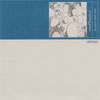 Intransitive Recordings has released one in a pair of discs by JohnGrznich and Seth Nehil that explores their prolonged colaboration ofthe last several years. 'Confluence' opens with an extended, airy droneand a slight whisper that leads into a repeated clanking rhythm thatgrows until another, deeper drone can supplant the first. Slowly,microorganisms made purely of sound begin to swell and collide as theopening piece, titled "Pneuma" in a vaguely scientific artspeak createsa self-sustaining colony of sounds as beings. Of course, thesound-organisms don't have to abide by the physical laws and socialrules that real beings would, and so the analogy ends there. ButGrznich and Nehil have set out to create organic sound systems with'Confluence' and the differentiation between an organic system and asymbol of one is important. The prose that fills the liner notes iscoldly detached as it describes processes, and experiments more thansounds and feelings. Of course, not all music is set to resonate on anemotional level, and "Pneuma" is a good example of that. You can findthe structures, observe the growth and be completely involved inlistening to the system, but it's not likely to affect you in apersonal, emotional way unless you are normally moved by the kind ofrigidly scientific approach to the world that this track seems toentail. "The Distant Edge," however, treads a very different terrainthat is full of voices and the aural signifiers of human activity. Theatonal choral drone that builds with the agitated activity of a beehiveis reminiscent of the György Ligeti themes in 2001, and is accompaniedby location recordings of crowd noise and honking car horns that evokethe confusion and dissonance of a demonstration in Belgrade. Thealbum's closer, "Lohme" is a fluttering, cyclic drone workout that seesa sonic system in stasis, wrapping around itself in a pulsatingwhitewash. "Lohme" lacks the tension of "The Distant Edge" and theclinical precision of "Pneuma," but works on it's own as a worthy forayinto musical structures that take an almost extreme amount of patienceand time to digest. From the pen and ink drawing on the cover to thelast fading tones of recorded tones, 'Confluence' is an observablesonic petri dish. Just like looking through a microscope at amorphousshapes colliding in the protoplasm, approaching this record can bedifficult and rewarding depending on what you expect to find.
Intransitive Recordings has released one in a pair of discs by JohnGrznich and Seth Nehil that explores their prolonged colaboration ofthe last several years. 'Confluence' opens with an extended, airy droneand a slight whisper that leads into a repeated clanking rhythm thatgrows until another, deeper drone can supplant the first. Slowly,microorganisms made purely of sound begin to swell and collide as theopening piece, titled "Pneuma" in a vaguely scientific artspeak createsa self-sustaining colony of sounds as beings. Of course, thesound-organisms don't have to abide by the physical laws and socialrules that real beings would, and so the analogy ends there. ButGrznich and Nehil have set out to create organic sound systems with'Confluence' and the differentiation between an organic system and asymbol of one is important. The prose that fills the liner notes iscoldly detached as it describes processes, and experiments more thansounds and feelings. Of course, not all music is set to resonate on anemotional level, and "Pneuma" is a good example of that. You can findthe structures, observe the growth and be completely involved inlistening to the system, but it's not likely to affect you in apersonal, emotional way unless you are normally moved by the kind ofrigidly scientific approach to the world that this track seems toentail. "The Distant Edge," however, treads a very different terrainthat is full of voices and the aural signifiers of human activity. Theatonal choral drone that builds with the agitated activity of a beehiveis reminiscent of the György Ligeti themes in 2001, and is accompaniedby location recordings of crowd noise and honking car horns that evokethe confusion and dissonance of a demonstration in Belgrade. Thealbum's closer, "Lohme" is a fluttering, cyclic drone workout that seesa sonic system in stasis, wrapping around itself in a pulsatingwhitewash. "Lohme" lacks the tension of "The Distant Edge" and theclinical precision of "Pneuma," but works on it's own as a worthy forayinto musical structures that take an almost extreme amount of patienceand time to digest. From the pen and ink drawing on the cover to thelast fading tones of recorded tones, 'Confluence' is an observablesonic petri dish. Just like looking through a microscope at amorphousshapes colliding in the protoplasm, approaching this record can bedifficult and rewarding depending on what you expect to find. Stray Light are the Manchester (UK) band I've enjoyed most in recentyears. After seeing their earliest gigs I invited them to support BardoPond and Stars of the Lid when I put on gigs for those bands. Theirdebt to Sonic Youth has always been apparent, but they play up a moremannered and thoughtful side of that influence than most detunedrockists. When they first started gigging around Manchester amongst asea of turgid Oasis clones they stood out a mile. Stray Light are allabout slowburning intertwined guitar melodies, bolstered by sweetviolin drone and skittering drums. 'Careers' consists mostly of finelywrought instrumentals which gleam elegantly, but it's a shame Kat Moordoesn't sing a little more as she can bring a heartfelt longing to hersemi-mumble singing that's quite stunning at times, and her duet withbassist / violinist Ellen Poliakoff on "Sarcasm On The Move" has astrange playground nursery rhyme feel that's both cute and sinister.Vocals don't force an entry until the fourth track, "Hearing Shapes,"which brings a buried folkiness to the byre. Whilst they open the albumwith all strings blazing in the psychedelic cloud swarms of the veryappropriately titled "Haze & Your Arm," mostly guitarists Kat andDavid Bennett pick careful arpeggiated flutter, swirling around in everdeepening pools, building carefully considered sunrise momentum. Whenthey do unleash a little six string fire, its always been carefullystoked. It seems rhythmic thrust is painted in by the guitar melodies,and Dan Dunbobbin's drumming tends to punctuate. The final track"Kitty's Blues" finds Kat describing pent up rage brilliantly in asparse lyric, "Every time you shut your eyes, you burst into flames,"and the album careers to a langourous anti-climax, cutting off aheartrending yearning elegy just as it seems about to explode.'Careers' follows up the CD-R release 'Mile 7' with similar shimmeringquality, but with perhaps more obvious contribution from their newestmember Ellen, whose violin has become ever more central to their sound.You can hear tracks at the Doubtful Sound website.
Stray Light are the Manchester (UK) band I've enjoyed most in recentyears. After seeing their earliest gigs I invited them to support BardoPond and Stars of the Lid when I put on gigs for those bands. Theirdebt to Sonic Youth has always been apparent, but they play up a moremannered and thoughtful side of that influence than most detunedrockists. When they first started gigging around Manchester amongst asea of turgid Oasis clones they stood out a mile. Stray Light are allabout slowburning intertwined guitar melodies, bolstered by sweetviolin drone and skittering drums. 'Careers' consists mostly of finelywrought instrumentals which gleam elegantly, but it's a shame Kat Moordoesn't sing a little more as she can bring a heartfelt longing to hersemi-mumble singing that's quite stunning at times, and her duet withbassist / violinist Ellen Poliakoff on "Sarcasm On The Move" has astrange playground nursery rhyme feel that's both cute and sinister.Vocals don't force an entry until the fourth track, "Hearing Shapes,"which brings a buried folkiness to the byre. Whilst they open the albumwith all strings blazing in the psychedelic cloud swarms of the veryappropriately titled "Haze & Your Arm," mostly guitarists Kat andDavid Bennett pick careful arpeggiated flutter, swirling around in everdeepening pools, building carefully considered sunrise momentum. Whenthey do unleash a little six string fire, its always been carefullystoked. It seems rhythmic thrust is painted in by the guitar melodies,and Dan Dunbobbin's drumming tends to punctuate. The final track"Kitty's Blues" finds Kat describing pent up rage brilliantly in asparse lyric, "Every time you shut your eyes, you burst into flames,"and the album careers to a langourous anti-climax, cutting off aheartrending yearning elegy just as it seems about to explode.'Careers' follows up the CD-R release 'Mile 7' with similar shimmeringquality, but with perhaps more obvious contribution from their newestmember Ellen, whose violin has become ever more central to their sound.You can hear tracks at the Doubtful Sound website. 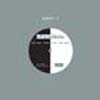 Swim releases are always worth a shot, so after being a bit surprised that Colin Newman was releasing a single by a band who sounded on the surface to be some kind of reversion to punk rock '77, I decided to try it anyway and see if it didn't grow in. This was a good idea, as I'd heard compressed radio broadcasts of Rhodes prior to hearing the single, and some of the raw powerhouse energy had been shorn away.
Swim releases are always worth a shot, so after being a bit surprised that Colin Newman was releasing a single by a band who sounded on the surface to be some kind of reversion to punk rock '77, I decided to try it anyway and see if it didn't grow in. This was a good idea, as I'd heard compressed radio broadcasts of Rhodes prior to hearing the single, and some of the raw powerhouse energy had been shorn away.
 Originally self-released as a five-song EP in 2001, Kid Dakota's expanded version (his debut full-length) arrives with three new tracks on Low's Chairkickers Union Music. (Low's own Zak Sally even joins the Minneapolis duo on bass on several tracks.) For a two-man outfit—Christopher McGuire on percussion and Darren Johnson contributing vocals, guitar, and all other instruments—Kid Dakota is electric. Jackson's songwriting and unvarnished angst break forth with surprising ferocity given that most of his songs feature two- (or three- or four-) part vocal harmonies and languorous guitar solos.
Originally self-released as a five-song EP in 2001, Kid Dakota's expanded version (his debut full-length) arrives with three new tracks on Low's Chairkickers Union Music. (Low's own Zak Sally even joins the Minneapolis duo on bass on several tracks.) For a two-man outfit—Christopher McGuire on percussion and Darren Johnson contributing vocals, guitar, and all other instruments—Kid Dakota is electric. Jackson's songwriting and unvarnished angst break forth with surprising ferocity given that most of his songs feature two- (or three- or four-) part vocal harmonies and languorous guitar solos.
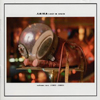 Only very few of my fave bands can usher me in a trance-like state tocompletely different worlds like Laika. After ten years of recording assuch, their first compilation has surfaced—collecting a number offavorites, rarities and unreleased things. While theobsessive/compulsive nitpicky side of me starts screaming bloody murderlooking for other rare omitted or forgotten tunes, the calm/collectedside of me is very thankful this came out. Thinking back to 1993, itwas obvious from the first Moonshake recordings that their strengthswere in the bass, female vocals and killer production. After releasingthe 'Eva Luna' LP and a couple EPs, the bassist, female singer andproducer broke free from Moonshake. (Unsurprisingly Moonshake's qualitysharply went downhill.) Guitarist/vocalist Margaret Fiedler, amid-westerner living in London and producer Guy Fixsen formed Laikawith other Moonshake alum, John Frenett on bass guitar. The debutalbum, 'Silver Apples of the Moon' surfaced in 1995 and further pushedthe best ideas put forth on 'Eva Luna,' deftly crashing the sounds ofadventurous rock and rhythmic mayhem. The dangerously catchy tunes weresaturated in electronic and organic percussion, whimsical loops,intoxicating repetitious bass guitar riffs and unoffensive vocals. Iremember seeing Tricky open for Laika on this tour and was simply wowedby their deceptive simplicity. Frenett departed, Rob Ellis joined andtheir second album, 'Sounds of the Satellites' came out in 1997. WithRob's departure, Laika became more clearly defined a duo between Guyand Margaret. 'Good Looking Blues,' released in 2000, was easily one ofmy faves of the year: their instrumentation became less and lesssaturated while the feel became more and more galactic. (Sometimes it'samazing how the simplest of instrumentations can create the mostcompelling songs.) All three albums are represented by some of theirband-picked highlights, while the bonus material includes non-albumtracks like "Lower Than Stars," originally recorded for a Volume comp,the brand new song, "Beestinger," three Peel Session recordings, theircover of Wire's "German Shepherds," and a couple remixes including JackDangers' epic 9+ minute extension of "Looking for the Jackalope."Originally recorded for the Red Hot compilaiton, 'Off-Beat,'"Jackalope" is one of my fave Dangers remixes, rhythmically laden withwhat sounds like baby rattles and entertaining samples of psychedelicnumerologists. Furthermore, an accompanying booklet has really coolstories and factual tidbits. For example: did you know singer/guitaristMargaret Fiedler has done more Peel Sessions for more bands than anyother woman? (This is due to her performances with Laika, Moonshake, PJHarvey and God is My Co-Pilot.) 'Lost in Space' is a two-disc set andis graciously priced only as a single and is worth every minute.
Only very few of my fave bands can usher me in a trance-like state tocompletely different worlds like Laika. After ten years of recording assuch, their first compilation has surfaced—collecting a number offavorites, rarities and unreleased things. While theobsessive/compulsive nitpicky side of me starts screaming bloody murderlooking for other rare omitted or forgotten tunes, the calm/collectedside of me is very thankful this came out. Thinking back to 1993, itwas obvious from the first Moonshake recordings that their strengthswere in the bass, female vocals and killer production. After releasingthe 'Eva Luna' LP and a couple EPs, the bassist, female singer andproducer broke free from Moonshake. (Unsurprisingly Moonshake's qualitysharply went downhill.) Guitarist/vocalist Margaret Fiedler, amid-westerner living in London and producer Guy Fixsen formed Laikawith other Moonshake alum, John Frenett on bass guitar. The debutalbum, 'Silver Apples of the Moon' surfaced in 1995 and further pushedthe best ideas put forth on 'Eva Luna,' deftly crashing the sounds ofadventurous rock and rhythmic mayhem. The dangerously catchy tunes weresaturated in electronic and organic percussion, whimsical loops,intoxicating repetitious bass guitar riffs and unoffensive vocals. Iremember seeing Tricky open for Laika on this tour and was simply wowedby their deceptive simplicity. Frenett departed, Rob Ellis joined andtheir second album, 'Sounds of the Satellites' came out in 1997. WithRob's departure, Laika became more clearly defined a duo between Guyand Margaret. 'Good Looking Blues,' released in 2000, was easily one ofmy faves of the year: their instrumentation became less and lesssaturated while the feel became more and more galactic. (Sometimes it'samazing how the simplest of instrumentations can create the mostcompelling songs.) All three albums are represented by some of theirband-picked highlights, while the bonus material includes non-albumtracks like "Lower Than Stars," originally recorded for a Volume comp,the brand new song, "Beestinger," three Peel Session recordings, theircover of Wire's "German Shepherds," and a couple remixes including JackDangers' epic 9+ minute extension of "Looking for the Jackalope."Originally recorded for the Red Hot compilaiton, 'Off-Beat,'"Jackalope" is one of my fave Dangers remixes, rhythmically laden withwhat sounds like baby rattles and entertaining samples of psychedelicnumerologists. Furthermore, an accompanying booklet has really coolstories and factual tidbits. For example: did you know singer/guitaristMargaret Fiedler has done more Peel Sessions for more bands than anyother woman? (This is due to her performances with Laika, Moonshake, PJHarvey and God is My Co-Pilot.) 'Lost in Space' is a two-disc set andis graciously priced only as a single and is worth every minute. Will Oldham's third full-length release as Bonnie 'Prince' Billycontinues to develop the intimate, personal songwriting he's known for.The sparse, haunting tone of 'I See a Darkness' has given way to a muchwarmer, lush feel that began to emerge on 'Ease on Down the Road.'Billy's acoustic guitar is the center of the sound, and it comes acrosssoft, clear and resonant against his reedy voice. The album's opener"The Way" shows that in spite of the more comfortable musical feel ofthe album, Billy is still not content, with its opening line "Wintercomes and snow / I can't marry you, you know" and its string-backedchorus, "Love me the way I love you." The broken romance dominates thealbum. Bonnie Billy can be imagined sitting by a fire in a tiny woodencottage in some Southern backwater, rehashing the heartache and penningbitter lyrics like "Constancy and love is a joke / I'm not afraid ofmeeting you / I'm fickle and I brag about it / neither will I cry foryou." Perhaps the most stunning song is "Wolf Among Wolves" where Billymost closely approaches his past 'Darkness' ghostliness. In betweenoccasional ambient gusts, Billy intones, "Why can't I be loved as whatI am? / A wolf among wolves and not as a man / among men." At times,the album can drag, particularly with the repetitive chorus of "Joy andJubilee," but for the most part, Oldham's words and arraignments areenough to keep you interested. "Master and Everyone" fleshes outOldham's melancholy songwriting with the addition of female backupvocals and instrumentation like strings, winds, and accordion. Mostimportantly, they are not used needlessly or overbearingly, butsparingly and sound like a perfect fit for the quiet, folky atmosphere.Oldham has a knack for crafting soulful, emotional songs and 'Masterand Everyone' demonstrates that he's only getting stronger. -
Will Oldham's third full-length release as Bonnie 'Prince' Billycontinues to develop the intimate, personal songwriting he's known for.The sparse, haunting tone of 'I See a Darkness' has given way to a muchwarmer, lush feel that began to emerge on 'Ease on Down the Road.'Billy's acoustic guitar is the center of the sound, and it comes acrosssoft, clear and resonant against his reedy voice. The album's opener"The Way" shows that in spite of the more comfortable musical feel ofthe album, Billy is still not content, with its opening line "Wintercomes and snow / I can't marry you, you know" and its string-backedchorus, "Love me the way I love you." The broken romance dominates thealbum. Bonnie Billy can be imagined sitting by a fire in a tiny woodencottage in some Southern backwater, rehashing the heartache and penningbitter lyrics like "Constancy and love is a joke / I'm not afraid ofmeeting you / I'm fickle and I brag about it / neither will I cry foryou." Perhaps the most stunning song is "Wolf Among Wolves" where Billymost closely approaches his past 'Darkness' ghostliness. In betweenoccasional ambient gusts, Billy intones, "Why can't I be loved as whatI am? / A wolf among wolves and not as a man / among men." At times,the album can drag, particularly with the repetitive chorus of "Joy andJubilee," but for the most part, Oldham's words and arraignments areenough to keep you interested. "Master and Everyone" fleshes outOldham's melancholy songwriting with the addition of female backupvocals and instrumentation like strings, winds, and accordion. Mostimportantly, they are not used needlessly or overbearingly, butsparingly and sound like a perfect fit for the quiet, folky atmosphere.Oldham has a knack for crafting soulful, emotional songs and 'Masterand Everyone' demonstrates that he's only getting stronger. -


